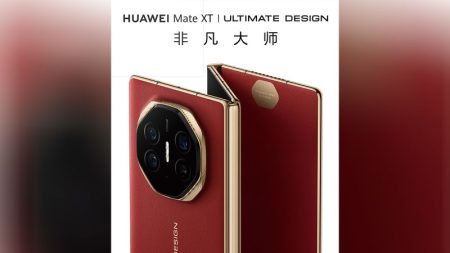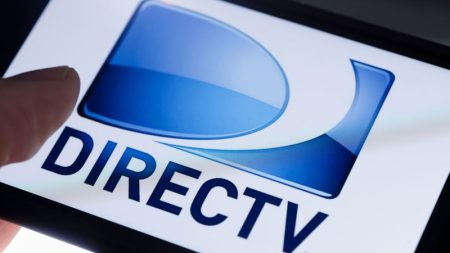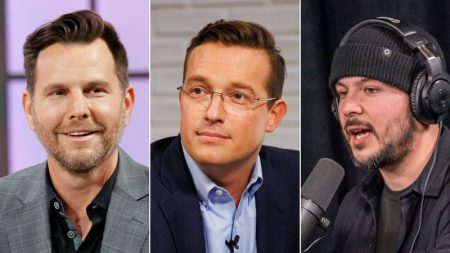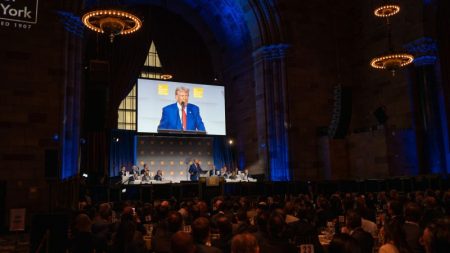Elon Musk appears to be on the cusp of deploying Tesla’s “full self-driving” system in the world’s biggest car market.
Musk flew out of Beijing on Monday after meeting China’s premier, Li Qiang, on Sunday and sealing a deal with Chinese tech giant Baidu to use the group’s mapping and navigation systems. Hours earlier, a Chinese industry group said Tesla’s EVs were among more than 70 cars that had been successfully tested for data security compliance.
Taken together, Musk appears to have smoothed the path for the US company’s semi-autonomous driving technology to be rolled out in China. Tesla’s share price closed 15.3 per cent higher on Monday at $194.05 on reports of the Baidu deal but remains at half of its 2022 peak.
Here is what the billionaire’s trip to China means for Tesla and the government in Beijing.
How much is Chinese approval worth to Tesla?
As sales fall and competition grows fiercer, Tesla has increasingly talked up the commercial opportunities that its self-driving technology offers.
“Going balls to the wall on autonomy is a blindingly obvious move,” Musk wrote on X, his social media platform, this month.
Tom Narayan, an analyst at RBC Capital Markets, said income from autonomous driving accounted for a fifth of his share price target for Tesla. The carmaker charges US drivers $99 a month to activate “full self-driving”, a partially autonomous system that ostensibly chauffeurs drivers but still requires motorists to pay attention.
Being allowed to offer the same service in China, where the company has about 1.6mn cars on the road, “would unlock a significant fleet of Tesla vehicles able to charge subscription fees”, said Narayan.
The move into China would also “push Tesla further to be an industry standard for software,” he added, and encourage other carmakers to license its technology.

Dan Ives, an analyst at Wedbush, said Musk’s trip resulted in the “long-awaited FSD approval”, which amounted to a “watershed moment” for the company. Tesla’s long-term valuation “hinges” on income from autonomy, he said, and China had been a “missing piece of the puzzle”.
“This is a key moment for Musk as well as Beijing at a time that Tesla has faced massive domestic EV competition in China along with softer demand,” he added.
Will new technology turn around slowing sales growth at Tesla?
Tesla has put significant stock in the value of globalising its self-driving technology as its core EV line-up ages compared with newer products from its Chinese rivals.
While arch-rival BYD aims to launch cars within 18 months of conception, it has been four years since Tesla released the Model Y, its best-selling car. The company announced the Roadster sports car in 2017 but has yet to begin production.
Musk last week promised that a new lower-cost model was coming next year. But despite a “refreshed” Model 3 entering production this year, the company is still nurturing a product offering that is significantly older than that of its competitors.
“The Tesla range is looking quite old,” said one former Tesla executive. “The [battery] tech is fine, but there are others out there, especially the Chinese, who are arguably better. The question [if he deploys FSD], is how much longer does he have a technology advantage on that?”
Expansion in China will be a test of how Tesla’s self-driving technology stacks up against local rivals. “They are betting it is the tech that makes or breaks a purchase decision,” said the former executive.
But it is not clear how confident consumers outside of urban areas are in the technology. “FSD works in Silicon Valley but not in Illinois,” added the former executive. “For the mass market it is still witchcraft.”
Why is helping Tesla important to China?
Under President Xi Jinping, many experts believe China has prioritised security over economic growth and domestic technology independence over integration with the outside world.
Angela Zhang, a professor of law at the University of Hong Kong and author of two books on Chinese technology regulation, said there were signs that Beijing was “easing” its approach as it needed foreign investment to shore up an economy in “deep trouble”.
Chinese EV producers want to dominate global markets and Beijing has a “strong incentive” to show the world that data security issues are not a barrier to international trade for Chinese EVs, she said.
Feng Chucheng, a partner at China-focused Hutong Research, said allowing Tesla’s self-driving technology had “strategic value” to Beijing.
The Cyberspace Administration of China has for several years been rolling out a sweeping legal framework for how businesses collect and use data, with strict rules on cross-border data flows and data viewed as a risk to Chinese security or citizens.
Despite western concerns about “over-securitisation”, the recent development of China’s data rules has been more “pro-growth”, Feng said. Beijing has been aligning its rules on outbound data transfer in line with the CPTPP and DEPA, two key regional trade pacts.
“Tesla’s rollout in China will be much desired for Beijing to prove that its data regulatory regime is gaining traction,” he said.
Can Tesla win back the Chinese market?
China is Tesla’s biggest market outside the US, a vital part of the supply chain for its electric vehicles and of growing importance as a regional export hub. Musk’s decision in 2018 to build a multibillion-dollar factory in Shanghai is credited with helping to spearhead the rapid growth of China’s EV industry.
But since then, the Chinese EV industry has stormed ahead. Tesla’s share of new electric vehicle sales stands at 7.5 per cent compared with 33 per cent for Warren Buffett-backed BYD. A core complaint from Chinese consumers has been the dearth of new Tesla models and high-tech features.
Despite the share price jump on Monday, analysts in China voiced caution.
Tom Nunlist, an expert in Chinese technology regulation with Beijing-based consultancy Trivium, said China’s regulatory environment was “still emerging”. “The folks that are overseeing the safety of automatic driving on highways are highly professional. They’re not going to relax their standards because of this [Musk’s visit],” he said.
Tu Le, founder of the Sino Auto Insights consultancy, said local rivals including Xpeng, Nio and Li Auto had their own self-driving systems and would drop their prices “the second” they thought consumers favoured Tesla’s technology. “Western analysts think Tesla automatically wins,” he said. “There are no guarantees.”
Read the full article here



